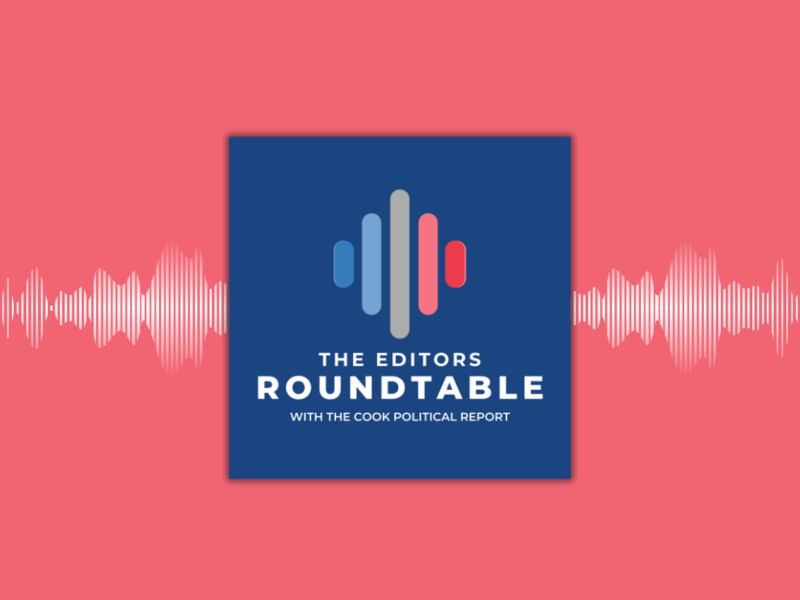
It was to my dismay that I discovered from “The Quote Investigator” that Abraham Lincoln may not have coined the phrase “defeat from the jaws of victory.” The (untrue) story goes that Lincoln, dismayed by yet another blunder by Union General Ambrose Burnside, said, “Only Burnside could have managed such a coup, wringing one last spectacular defeat from the jaws of victory.” Despite blunders at the Battle of Fredericksburg and the Battle of the Crater, Burnside was subsequently elected governor and senator from Rhode Island.
But liberals threaten to pull off just such a feat by overreacting to excesses committed by President Trump with overreaches of their own—particularly by calling for the elimination of Immigration and Customs Enforcement, the agency within the Homeland Security Department that deals with border security and tariffs, as well as other things like human trafficking and importation of stolen art.
Does Trump doubling-down to placate his base mean that it is good policy or politics for the Left to do the same? The “Abolish ICE” rhetoric to protest Trump policies brings to mind another old saying, often attributed to the Rolling Stones’s Mick Jagger as well as to Navy SEALs: “Anything worth doing is worth overdoing.” Were they in favor of abolishing ICE during the Obama administration? Their beef should be with Trump and his administration's policies, not with the career men and women employed to carry them out.
Public-opinion research is very clear that a majority of Americans do not support either Trump’s border wall or his administration’s policy of separating children from parents suspected of entering the country illegally. There is a mountain of polling data supporting that statement; opposition to the wall was 58 percent in a Quinnipiac University poll, 57 percent according to a Gallup Poll, and 56 percent in a Pew Research Center survey, all three conducted in June. A CBS News poll in June found that 67 percent believed the policy of separating children from parents was unacceptable, the same percentage as in a CNN Poll last month. Similarly there is strong public support for allowing “Dreamers,” those brought into this country illegally many years ago as children, to stay and have a path of citizenship; 73 percent said so in the Pew Research Poll last month.
But the leap from opposition to a border wall and separating families all the way to eliminating the agency charged with immigration enforcement and many other unrelated missions is an enormous one that would likely leave most Americans behind. Public opinion is not one-sided on any of this. Keep in mind that various polls have found at least some support for building a wall—38 percent (CBS News), 39 percent (Quinnipiac), or 41 percent (Gallup)—and there are a lot of voters who are balancing a variety of interests and opinions in their minds. A June Gallup Poll asked, “In your view, should immigration be kept at its present level, increased or decreased?” A plurality, 39 percent, said keep at its current level, 28 percent chose increase, and 29 percent chose decrease—pretty much an equilibrium point.
That same Quinnipiac Poll asked, “In your opinion, has the Trump administration been too aggressive in deporting immigrants who are here illegally, not aggressive enough, or has the Trump administration been acting appropriately when it comes to deporting immigrants who are here illegally?” It found that precisely half felt that the administration policy was too aggressive, 33 percent thought it was appropriate, and 13 percent thought it was not aggressive enough. The June Gallup poll asked adults nationwide, “On the whole, do you think immigration is a good thing or a bad thing for this country today?” Seventy-five percent said it was a good thing, while just 19 percent said it was a bad thing.
But this overreach by the Left is not something that is confined to the immigration issue. One can be horrified by Russian meddling in the 2016 presidential election, along with Brexit, attempts to break up NATO, and bots pushing out inflammatory and in many cases wholly untrue stories designed to outrage people on both sides of the racial divide; one can be concerned about or convinced of inappropriate and/or illegal actions by Trump, his administration, campaign, and business, but see impeachment, at least based on what is known today, as a bridge too far. (Not to mention the simple fact that getting 67 Senate votes to convict is extremely unlikely, as it was against President Clinton in 1999).
Talk on the Left of impeachment both awakens and energizes the Trump base and creates doubts among swing voters about whether Democrats are capable of governing any better than the GOP. Voters in an April Quinnipiac Poll, when asked whether Democrats should impeach Trump if they win a majority, opposed impeachment by a 17-point margin, 55 to 38 percent. Among independents, it was a 16-point margin, 54 to 38 percent. An NPR/PBS/Marist University Poll found that by a 5-point margin, 47 to 42 percent, voters would definitely oppose any candidate who supported impeaching Trump. The fact that Trump can have terrible job-approval numbers yet pluralities oppose his impeachment demonstrates that this is not binary; there are degrees of support for and alienation from Trump.
There are ideological silos on the Right and the Left, but plenty of other Americans, including swing voters, do not nightly worship at the altar of liberal or conservative televised rantings and food fights. Candidates and officials echoing themes so popular in lopsided, gerrymandered districts of either the Democratic or Republican kind can make life difficult for candidates of their party running in less hospitable environs. The difference between a permanent minority party and ranking-member status and a majority party with actual chairmanships is determined in swing districts and states, ones where more nuanced and balanced arguments are required to win. One does not have to watch many minutes of cable-news programming to hear such miscreants on the Far Left making it more difficult for their party to win House and Senate majorities, and on the Right making it more difficult for their party to retain power.
This story was originally published on nationaljournal.com on July 3, 2018









Subscribe Today
Our subscribers have first access to individual race pages for each House, Senate and Governors race, which will include race ratings (each race is rated on a seven-point scale) and a narrative analysis pertaining to that race.